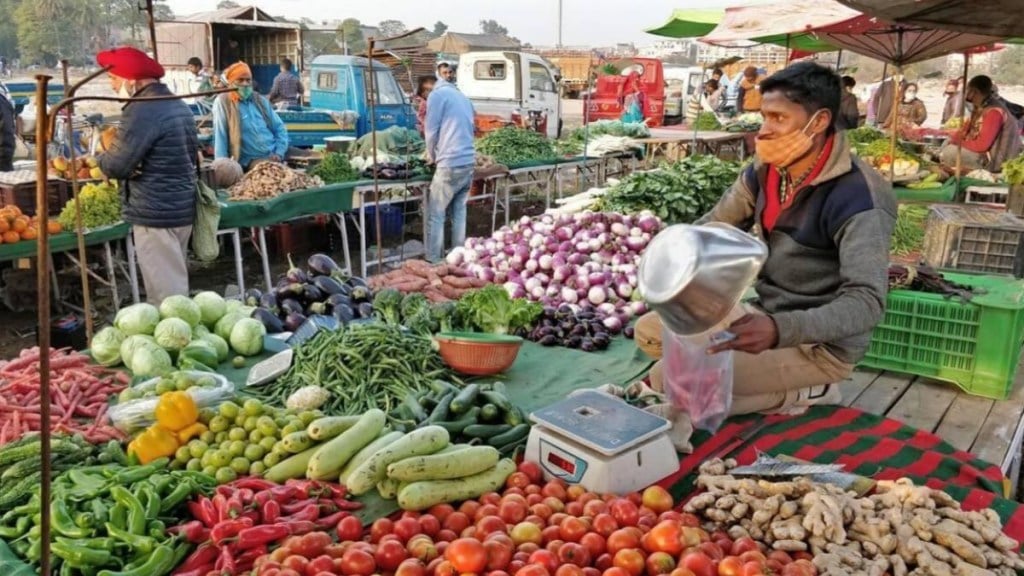India’s retail inflation in the month of August slowed to 6.83 per cent, 61 basis points lower in comparison to the 15-month high of 7.44 per cent in July, data released by the Ministry of Statistics and Programme Implementation showed on Tuesday. This was largely led by vegetables, amidst some moderation in the prices for clothing and footwear, housing and miscellaneous items as well.
This is the fourth month when inflation has come in higher than the upper bound of the Reserve Bank of India’s (RBI) tolerance level. The RBI has the mandate to keep retail inflation in the range of 2 to 6 per cent and after remaining above the upper limit for most of the 2022-23 financial year, inflation was in the central bank’s comfort zone this fiscal till June when it was at 4.87 per cent.
According to the data released by the ministry, rural inflation fell to 7.02 per cent in August from 7.63 per cent a month ago, urban CPI slowed to 6.59 per cent from 7.20 per cent in July.
The CPI-based inflation in the food basket, which accounts for nearly half of the overall consumer price basket, fell to 9.94 per cent as against 11.51 per cent during the previous month. In August, the inflation in the vegetable basket was at 26.14 per cent, spices at 23.19 per cent, pulses & products at 13.04 per cent, cereals & products at 11.85 per cent, and fruits was at 4.05 per cent. The inflation in clothing and footwear was in single digit, at 5.15 per cent, housing was at 4.38 per cent, and fuel & light was at 4.31 per cent.
The food and beverages segment together contribute about 54 per cent of the overall CPI.
Earlier in August, RBI Governor Shaktikanta Das, while announcing the RBI MPC’s decision to keep the key policy repo rate unchanged at 6.5 percent, had said that a substantial increase in headline inflation would occur in the nearterm.
The RBI governor had said that the moderation in headline inflation to 4.6 per cent in Q1 of 2023-24 was in line with the projections set out in the June MPC meeting. “There was a pick-up in headline inflation to 4.8 per cent in June due to an upturn in food inflation. On the positive side, inflation excluding food and fuel (core inflation) has softened by more than 100 basis points from its recent peak in January 2023. The month of July has witnessed accentuation of food inflation, primarily on account of vegetables.” He had added that the spike in tomato prices and further increase in prices of cereals and pulses have contributed to this and consequently, a substantial increase in headline inflation would occur in the nearterm.

